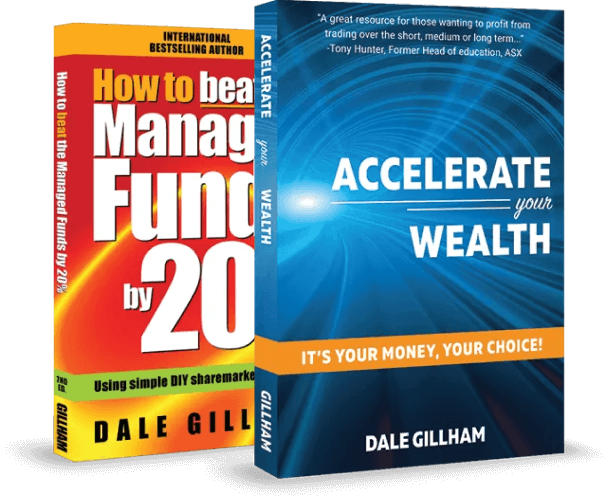What Lessons Can We Learn about IPOs from the Demise of F45?

By Dale Gillham
High-profile gym franchise F45 is in hot water again after it released its restated financial accounts, which showed that over the last two years, it had suffered losses of around USD 370 million or just under $600 million Australian. It also faces lawsuits from franchisees and celebrities who used to endorse the brand.
F45 established its first gym in Sydney in 2013, and it took the world by storm using the franchising model to develop over 1500 studios in 63 countries worldwide by June 2021. The gym was made famous by the likes of Mark Wahlberg and other celebrities, such as David Beckham, promoting its 45-minute high-intensity workout.
F45 delists from the NYSE and is on the brink of collapse
F45 went public on the NY Stock Exchange on July 14, 2021, with an offer price of around USD 16 a share. Investors must now be scratching their heads at what went wrong, given that over two years later, F45 is on the brink of collapse. The shares were de-listed from the NYSE in September with a final listing price of just USD 0.025. Anyone who invested in the initial offering has lost most of their investment, with the stock down 99.84 per cent.
Unfortunately, when a stock delists from an exchange, the only way to sell your shares is to find a private buyer and sell them directly, which is unlikely to occur given what is unfolding with F45. Unfortunately, unless someone can jump-start the company, most investors will have lost everything.
So, what lessons can we learn from this?
Be very cautious when investing in any Initial Public Offering (IPO) because my research shows that within the first 12 months of listing, both in Australia and the USA, 50 per cent of companies who list trade below their listing price. This is supported by an article from NASDAQ, which states that the proportion of unprofitable companies that list on the stock exchange has been rising since 1980. Another study from NASDAQ ranging from 2010 to 2020 found that most companies had a negative return of 64 per cent within three years of listing.
It’s important to remember that an IPO document is a sales letter written by the marketing team with help from the accounting team, and its goal is to get you to invest. Unfortunately, too many investors fall in love with a stock or its story, which is what happened with F45. Shockingly, investors are also tempted to buy more of the stock as the price falls, while others buy-in for the first time, believing the stock is cheap after it has fallen. They justified their actions because Marky Mark and other famous people backed it, so it must be a winner.
As I always say, don’t try to catch a falling knife, but in the case of F45, I think they tried to catch a chainsaw. The critical lesson is to never invest in an IPO until the stock is trading on the market for a reasonable amount of time, as you can never be sure how good a company is until the broader market shows support.
What were the best and worst-performing sectors last week?
The best-performing sectors included Utilities, up 1.73 per cent, followed by Materials, up 0.87 per cent, and Healthcare, down 0.48 per cent. The worst-performing sectors included Real Estate, down 4.38 per cent, followed by Information Technology, down 3.71 per cent and Communication Services, down 2.46 per cent.
The best-performing stocks in the ASX top 100 included Lynas Rare Earths, up 13.20 per cent, followed by Iluka Resources, up 6.90 per cent and Harvey Norman Holdings, up 5.38 per cent. The worst-performing stocks included Nine Entertainment Group, down 8.82 per cent, Mirvac Group, down 8.09 per cent and Brambles, down 7.96 per cent.
What's next for the Australian stock market?
There are only two things you can control in the stock market: when you buy and sell, the rest is up to the market. In my decades of analysing the All Ordinaries Index, the one thing I know for sure is that it always proves who is in charge and provides us with lessons, which is what is occurring right now, and you may wonder why.
The stock market is cyclical, which means if we study its historical data, it can provide a good indication of where it might head in the future. However, we cannot predict volatility, which arises from various circumstances such as COVID-19 or the 9/11 attack on the World Trade Centre. As to what is occurring right now, world markets are nervous about what is unfolding in Gazza, which means they are reducing their risk exposure.
As I have mentioned a few times in the past couple of weeks, the Australian stock market could fall below the 7,000-point support level, which occurred last week, with the market falling to 6,966 points. So where to from here?
While I may be overly bullish, the end of the move-down is very close. The next level of support is 6,800 points and then around 6,600 points, with solid support at about 6,200 points. How far the fall will be is a little uncertain, given conditions around the world right now, but our market is quite resilient. Given this, I'd encourage everyone to remain patient and to use a stop loss on your stocks.
For now, good luck and good trading.
Dale Gillham is the Chief Analyst at Wealth Within and the international bestselling author of How to Beat the Managed Funds by 20%. He is also the author of the bestselling and award-winning book Accelerate Your Wealth—It’s Your Money, Your Choice, available in all good bookstores and online.






